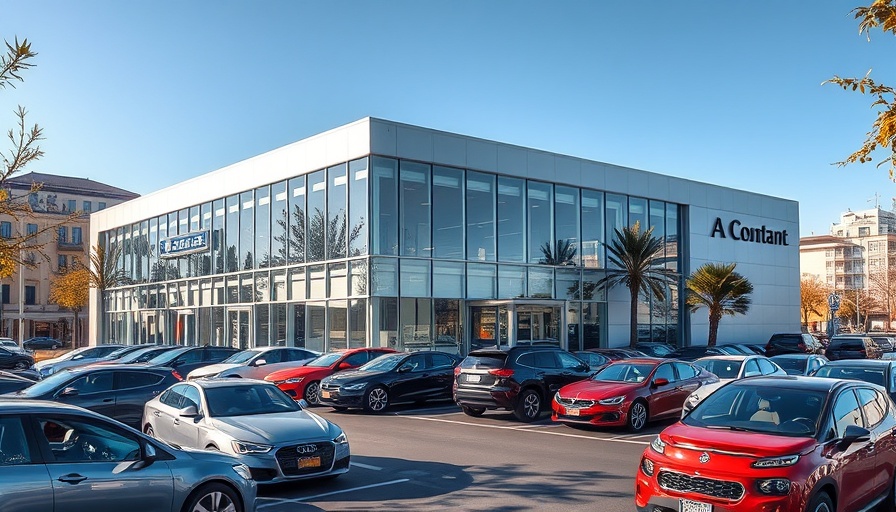
Understanding the Pay Landscape in the Automotive Sector
Motor Trader has unveiled the dealer groups with the highest average salaries in its recent report, the MT Top 200 Dealer Groups, offering insights that are crucial for industry professionals. Leading the pack is the TC Harrison Group, where employees enjoy an impressive average annual salary of £53,762. Not only does this highlight competitive compensation, but it also raises important questions about employee retention strategies in the automotive sector.
Shifts in Salary Trends: A Broader Economic Context
The broader context in which these salaries exist shows a notable trend: average pay in the automotive industry is rising but is still trailing behind the burgeoning average wages across the UK economy. With a weighted average salary of £37,008 for dealer groups, this figure exceeds the national average but has narrowed from a previous gap of 11% seen last year. The changing dynamics of wage growth in the UK suggest that automotive groups must reevaluate their remuneration strategies to remain attractive to potential employees.
The Impacts of Salary on Employee Morale and Retention
As highlighted by report author Chris Oakham, the stagnation observed in wage increases within the MT Top 200 could lead to challenges in staff retention. With the automotive industry continuing to face skill shortages, ensuring that pay scales are competitive will be essential for retaining talent. The report underscores that investing in employees is more than just about salaries; it's also integral to creating a workplace culture that motivates staff.
Future Trends: What Lies Ahead?
Looking ahead, the financial well-being of employees within dealer groups represents a bellwether for industry trends. With automotive technology evolving rapidly, including moves towards electric and autonomous vehicles, the demand for skilled employees who can drive this innovation is only expected to grow. Dealer groups will need to align salary structures not just with current industry expectations, but also with the anticipated growth in skill requirements in the near future.
Conclusion: The Business Case for Competitive Salaries
The findings from Motor Trader serve as a reminder to automotive businesses that competitive compensation is not simply a cost, but an investment in future success. As the industry adapts to new technologies and changing consumer preferences, organizations that prioritize employee compensation and retention strategies will likely emerge as leaders. By staying informed and proactive about salary trends, businesses can position themselves for growth in an increasingly competitive marketplace.
 Add Row
Add Row  Add
Add 




Write A Comment